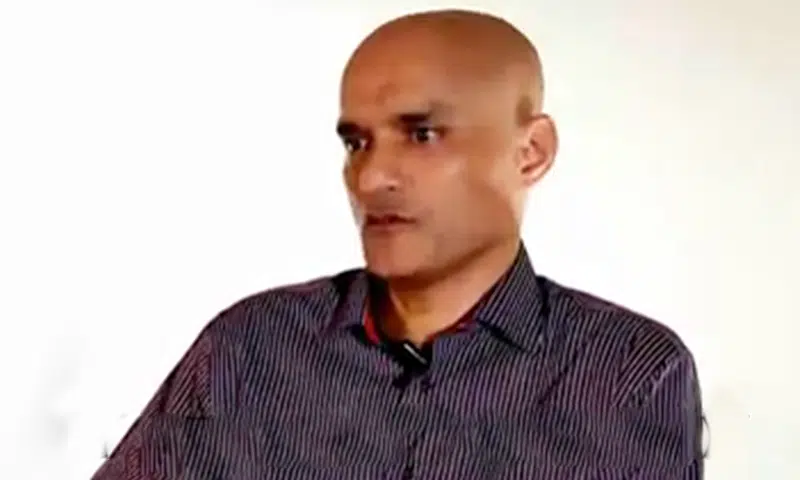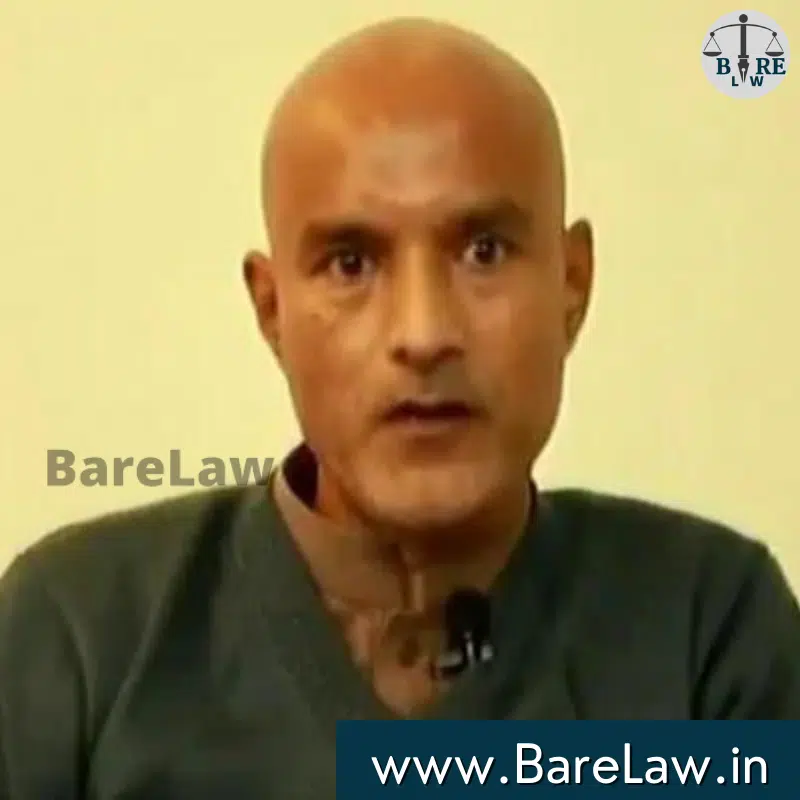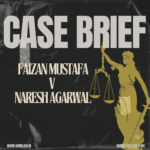KULBHUSHAN JADHAV CASE

Case brief of Kulbhushan Jadhav Case
BRIEF FACTS
On the 8th day of May, 2017, India initiated an Application for the institution of proceedings against Pakistan on account of an alleged violation by it of the Vienna Convention on Consular Relations dated April 24, 1963 “in a matter of detention and trial of an Indian national Mr. Kulbhushan Sudhir Jadhav”, who was sentenced to death through a court-martial in Pakistan in April 2017.
CONTENTIONS BY INDIA
India argued that it had not been informed promptly after the arrest and detention of its Nationality by Pakistan.
He also claimed that Article thirty-six (36) was not explained to him under the Vienna Convention on Consular Relation and he never met with any representatives from India’s state department officials while he was still held captive or imprisoned at different levels before his sentencing. No way for the Indians to have contact with him or even allow him meet his legal adviser during his stay within custody until up to this time henceforth rendering void all these aspects as far as diplomatic communication is concerned.
According to India, this provision is contained in Article one(1) of Optional Protocol to the Vienna Convention on Consular Relations concerning the Compulsory Settlement of Disputes.

CONTENTIONS BY PAKISTAN
Pakistan also informed India about his arrest and detention which happened three weeks after apprehending him most surprisingly.
Pakistan objected to admissibility on grounds that included abuse process, abuse rights and unlawful conduct.
It added that this case is purely a domestic issue between Pakistan and India hence it should not be entertained by International Court of Justice. Therefore, application by India cannot be viable.
FINDINGS OF THE COURT
The Court concluded that it has jurisdiction over this dispute since it pertains to matters provided under The Vienna Convention. It noted however that Pakistan had communicated about the arrest some three weeks later than required leaving out its obligations to inform the consular post “without delay” within the meaning of Article 36, paragraph 1 (b), of the Vienna Convention. Pakistan had made it clear that no Indian consular official would be allowed access to Mr. Jadhav, but the Court took the view that India’s alleged non-cooperation in relation to investigations in Pakistan did not absolve it from complying with its obligation to grant consular access and did not justify Pakistan’s refusal of access to Mr. Jadhav by officials from Indian consulates. The court maintained that a trial, which was an absolute farce, had sentenced Kulbhushan Jadhav to death.
CRITICAL ANALYSIS
State Responsibility is a concept under International law whereby states are liable for their actions or omissions. States sign international treaties which become binding on them by virtue of their signature. When these treaties are violated by any state or any international rules are broken this becomes a violation of International Law. It is then incumbent on such state to stop such acts forthwith failing which ICJ takes up matter to give justice.
The procedures lasted for two years and two months approximately. 15 judges voted in favor of the decision while only one dissented from it. The dissenter was an ad-hoc judge known as Jilani. In his dissenting judgment, Justice Jilani has relied on different instances to decide his choice which wasn’t having any remote connection with the questions of law at hand before the ICJ. He fairly dealt with legal issues and discussed International Law concerning those issues based on incidents like admission of Mr. Jadhav, Kashmir issue, and other political matters to justify himself. The majority judgment addressed violation of Article 36 of the Vienna Convention.The ICJ judgement was a levelled ruling where courts while limiting its interference only until its jurisdiction delivered a verdict in best conformity with International Law.The decisions were consistent with previous discussions on ICJ due to the fact that the relief granted in this case was indistinguishable from remedies issued in cases such as LaGrand and Avena where it touched on this same point of law.ICJ called for a “review and reconsideration” of Mr. Jadhav’s conviction and sentence by Pakistan Government as it did in aforementioned cases.When you look at it critically though, even if some sort of wishful thinking appears out (if not all) these may appear somewhat relieving to India as all what they had hoped for; but certainly most came through.



